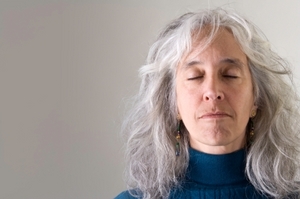I was only 19 years old when I had my first panic attack, but I remember it like it was yesterday. I was in the car on the way home from a concert. Suddenly I felt like the car was closing in on me, I couldn’t breathe. In a frantic attempt to roll down the window, I broke it. This was just the first of many attacks that I would come to have. It was no surprise to me when, just a few months later, I was diagnosed with full-blown general anxiety disorder.
Anxiety doesn’t only exhibit the symptoms I described above. It can have a wide range of things as well. I have listed some of the most common ones below:
Intense feeling of fear
Hyperventilation (feeling as if you can’t take a breath)
Chest pain or racing pulse
Thoughts of impending doom
Fear of death
Tightness in neck and shoulders
Sweating
Feeling disoriented
Any of these can be associated with a panic attack. Also other symptoms not listed can occur as well. You must keep in mind that most of these symptoms are created in your mind, and though they are very real, they usually pose no threat or physical harm. I can’t tell you the countless times I ended up in the emergency room just to be sent home with another anxiety diagnosis. In my mind I was having a heart attack, but physically I was just fine.
Over the years I have taken many medications. Anti-depressants and SSRI’s are very useful in helping control anxiety, benzodiazaphines are also very helpful in helping you relax. Along with medication, therapy is an excellent tool in helping you not only cope but be able to confront some of the reasons you may be anxious. Many times though a chemical imbalance in the brain is responsible for these attacks. It tends to come out more when you are already stressed and pushed to your limits.
While learning to cope with your anxiety, whether you decide to use medications or other methods, I have found the following to be very useful in helping to ward off or at the least lessen the effects of an attack. They are:
Deep breathing exercises: Breathe deeply in through your nose and out through your mouth. This should be done several times while focusing all your attention on the breathing.
Muscle Relaxation: Begin by lying down in a comfortable position. Start with your neck, tense each muscle group, holding for ten seconds each. Move slowly down your body…your neck, shoulders, arms and so on until you reach your feet. Doing deep breathing along with this helps too.
Take a nice hot bubble bath Use some relaxing aroma therapy oils as well to enhance relaxation.
If you tend to have obsessive thoughts that cause anxiety, try a rubber band. Put a plain rubber band on your wrist and snap it every time you have an upsetting thought. I am not sure why, but this works very well.
Cold water. If you are on the brink of a full blown panic attack, try drinking some ice cold water. This tends to be a bit of a shock to your system and sometimes helps ease the attack.
Ride it out. Sometimes the only thing you can do is stop resisting and just allow the attack to wash over you. Just keep reminding yourself you’re going to be OK.
These are just a few suggestions and in no way take the place of care by a licensed professional. There are many wonderful psychiatrists and therapists who know how to help you through this. Many of the medications are very safe and effective and also come in cost saving generic form. There are also programs in every state that help with mental health care. There is no reason to live in fear.
As for myself, I am now off of medication and doing well. I still have a small panic attack every so often, but I have learned what triggers them and how to ride them out or stop them all together. No longer does Anxiety rule my life.
